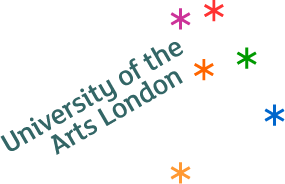
About the Project
The aim of the Kultur Consortium is to create a transferable and sustainable institutional repository model for research output in the creative and applied arts, a discipline area where repository development is so far underdeveloped. The project will investigate a policy and technical framework for creating a multimedia, multifunctional repository, applicable both to specialist institutions and departments across the sector, and by extension to potential cross-domain users, museums, galleries and performing arts with whom there are strong links within these disciplines. The project is focused both at the technical level, primarily through the software configuration and deployment of EPrints.org, and at the institutional level by developing effective practice for managing multimedia deposit, population and advocacy, dissemination and preservation. An important output is the transfer of experience and expertise across the sector to support those working in the field to translate their mode of scholarly communication into digital form.
Funding
Kultur
is being funded by JISC, under the Start-Up and Enhancement strand of
its Repositories and Preservation programme.
The project is running from 31 March 2007 - 31 March 2009.
Outputs
The
key outputs of the project are:
1. A working model of a sustainable institutional repository for research
output in the visual and applied arts providing a framework for effective
practice in managing and promoting non-text based research outputs.
2. A transferable model of an uber repository based on providing flexibility
in matching metadata and indexing to discipline needs.
3. An application of a model of shared practice across the sector between
a mature repository in the research sector and other HE institutions.
4. A metadata, preservation and access framework as an exemplar for
managing material in the visual and creative arts compatible with evolving
international standards and the work of a national datacentre (Visual
Arts Data Service).
5. A framework for cross-sectoral, cross-domain partnership in the visual
and creative arts.
Approach
Based
on the experience of developing the research repository at Southampton,
the project will create working repositories for the creative and applied
arts at the University of the Arts London, and University for the Creative
Arts at Canterbury, Epsom, Farnham, Maidstone and Rochester, whose combined
subject interests cover a wide spectrum of cultural outputs. At the
same time Southampton will develop its existing repository (e-Prints
Soton) to support more creative arts outputs, with input from the
galleries and arts activity at the Winchester School of Art, a constituent
part of the University
On
the technical side the project will refine the use of software to develop
a flexible repository structure by defining specialist metadata and
formats for the model of a central repository. The project will then
investigate how metadata and distinctive formats required by the discipline
can be matched with the concept of a central repository for the creative
and applied arts. This will review existing models and practices for
repository structures, and will consider the scalability of the management
of complex metadata types in repositories.
This is a user-led project which will investigate the ways in which
institutions, research groups and individual academics working in the
creative and applied arts can be encouraged to create and deposit digital
representatives of their work. By engaging in a collaboration between
two specialist institutions working with these disciplines, and a mature
repository with a history of successful advocacy, the project can share
practice and work through the barriers and incentives for academics
to deposit their material. As the disciplines themselves are by their
nature working across sectoral boundaries, this will provide a framework
for reviewing cross-sectoral as well as cross-domain boundaries. This
cross-domain aspect will be represented at Southampton by internal collaboration
with the John Hansard Gallery, and the Winchester Gallery.
Two project officers, one in each partner institution, will lead the advocacy and populating process, developing technical and user profiles in their specialist areas and interacting with the project manager and the technical project officer at Southampton. Southampton will act as a development and testing hub. To facilitate early adoption, Southampton will set up demonstration repositories, and allow work locally to focus on analysis and advocacy. As the two institutions build their infrastructure support, responsibility for the repositories will move across.
VADS will contribute expertise in the areas of image data and metadata standards, knowledge of the needs of the visual arts community, expertise in digital preservation and user interfaces. VADS' work developing an Images Application Profile will inform the metadata schema used in the Kultur repositories. Through VADS the project will also have a link with practice in using digital visual arts data in digital learning objects, and the harvesting of distributed multimedia resources.
The project will also benefit from interaction with the Leiden University as an associate partner outside the UK. Leiden University will, as associated partner, investigate the ways in which research groups and individual academics working in the Art History Department and the Faculty of Creative and Performing Arts can be encouraged to create and deposit digital representatives of their work.
 RESIZED.jpg)




